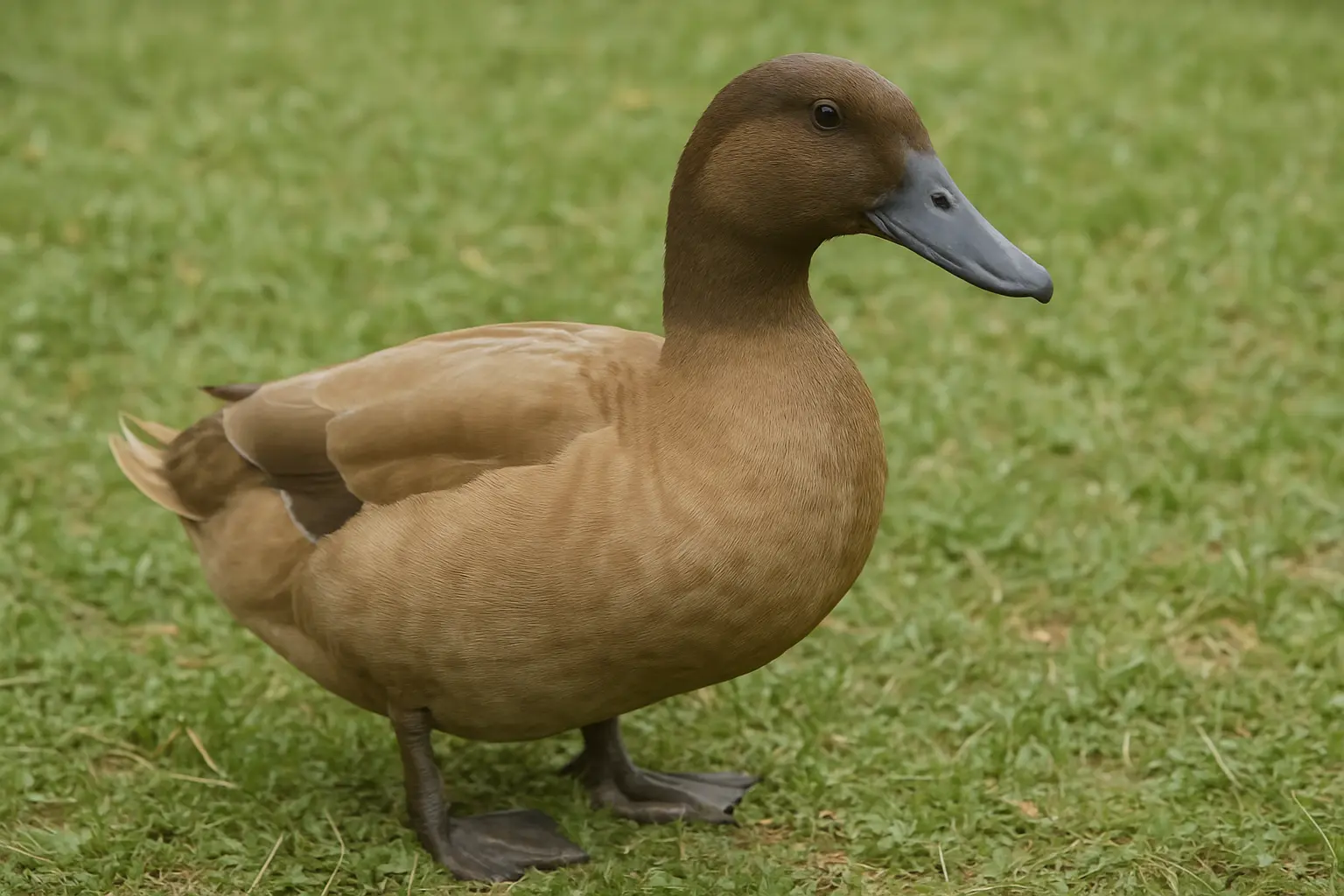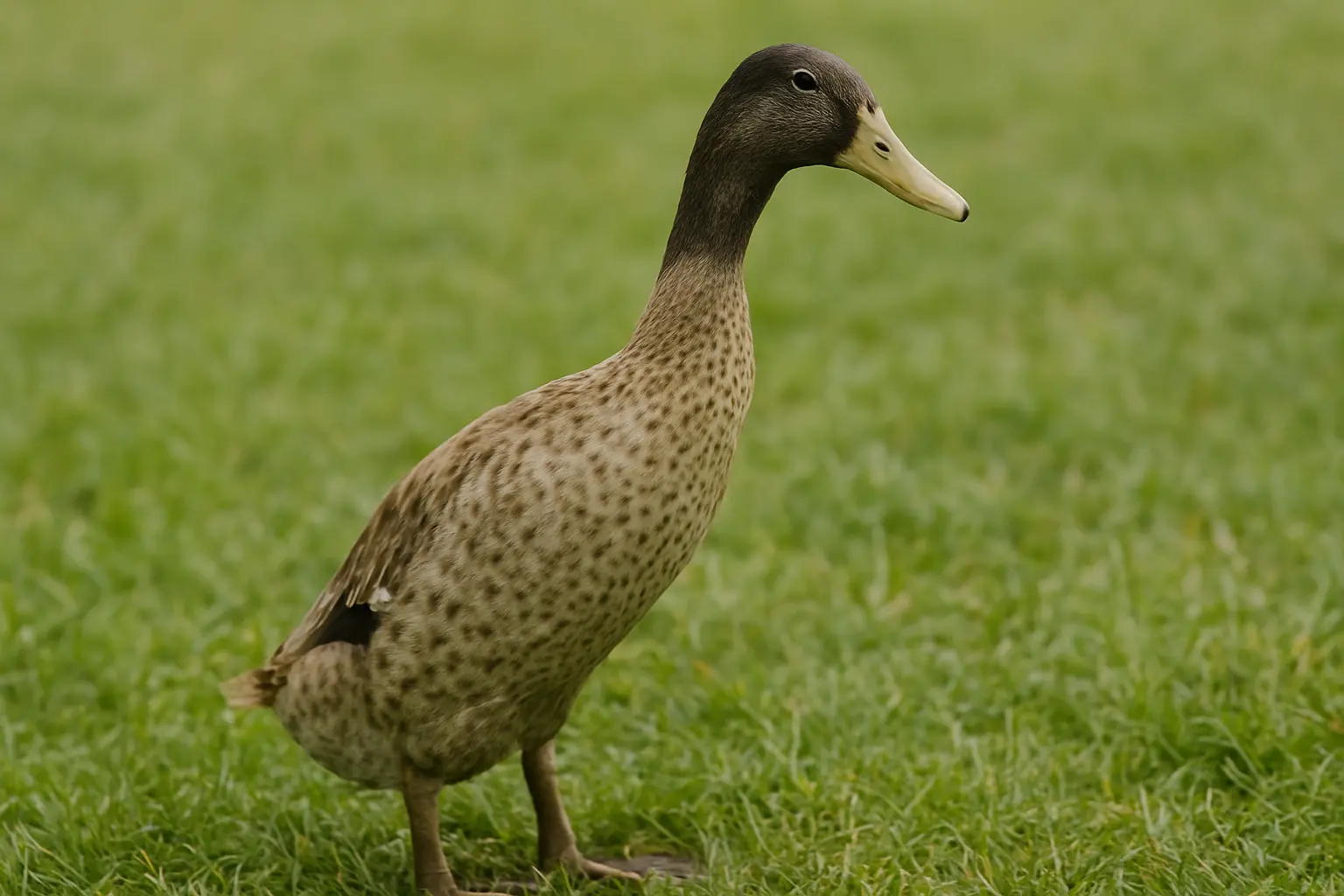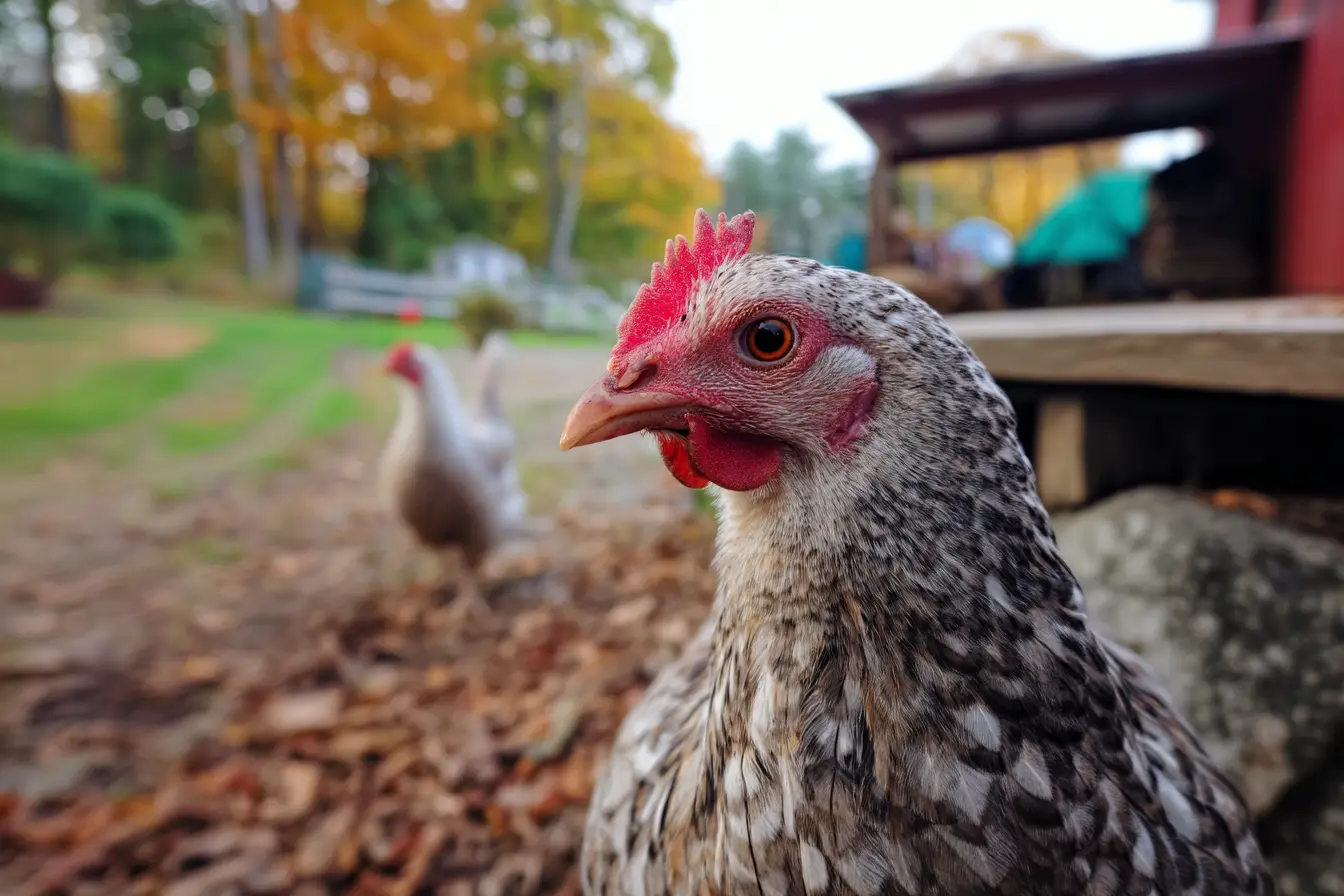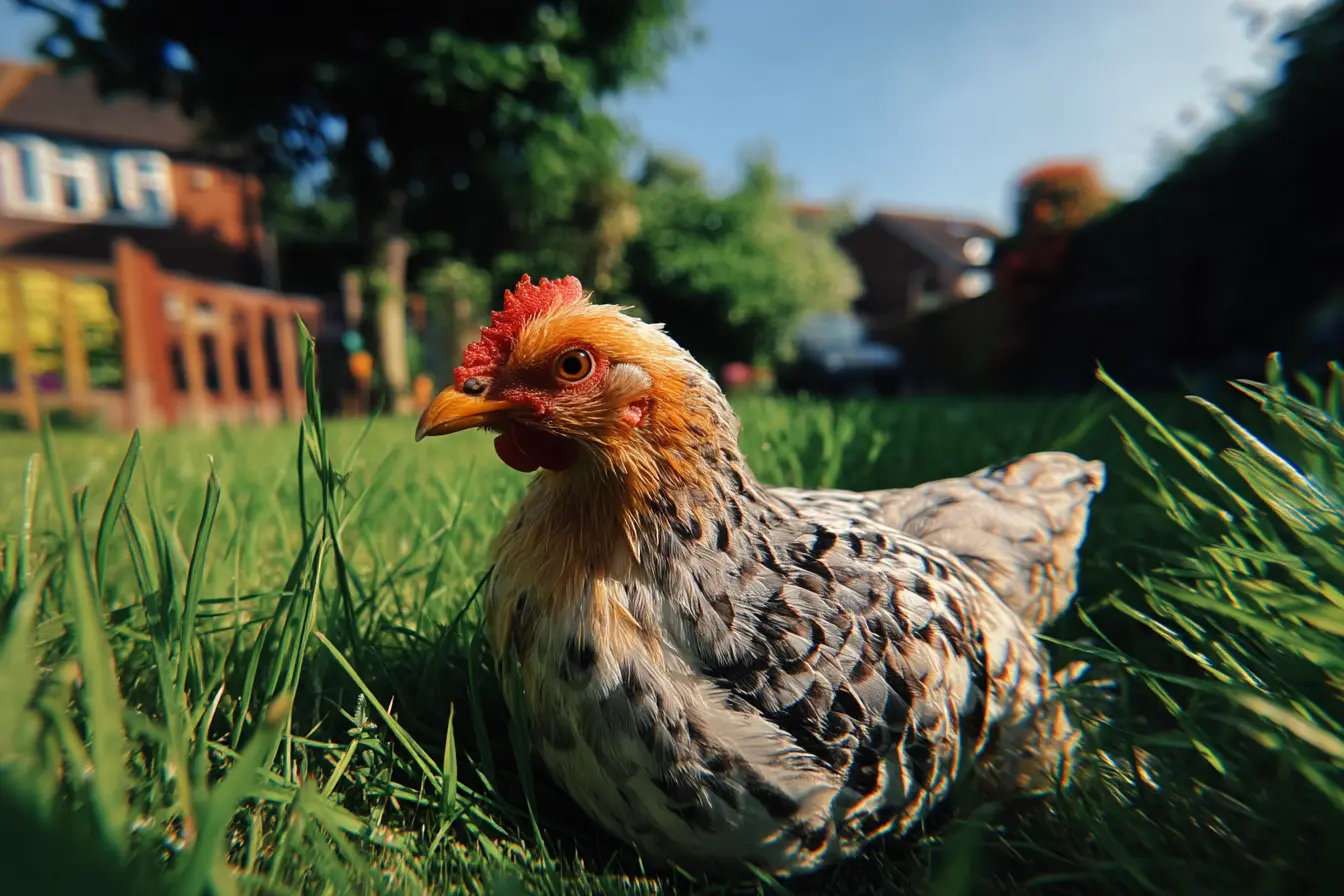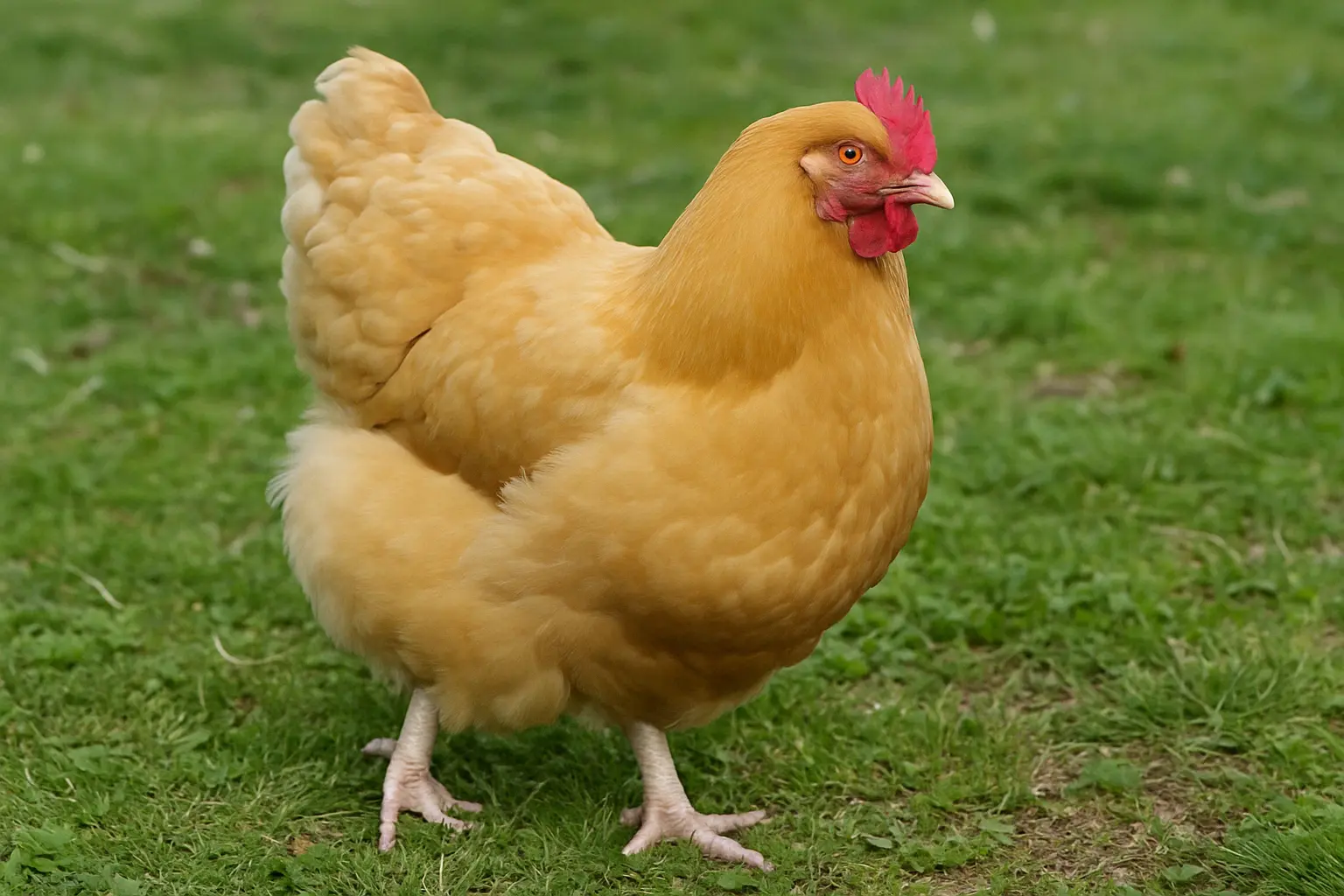
A Complete Guide to Keeping Buff Orpington Chickens
Buff Orpington chickens are a popular and beloved breed among poultry keepers in the UK. Known for their friendly temperament, striking golden plumage, and reliable egg production, they make an excellent addition to any backyard flock. Whether you're new to chicken keeping or an experienced poultry enthusiast, this guide will provide you with everything you need to know about keeping Buff Orpingtons.
Introduction to Buff Orpington Chickens
The Buff Orpington is a British breed, developed in the late 1800s in Orpington, Kent. It was created to be a hardy, dual-purpose bird, suitable for both meat and egg production. Today, Buff Orpingtons are valued not only for their utility but also for their gentle nature and beautiful appearance.
Key Characteristics:
- Lifespan: 8-10 years with proper care
- Egg Production: 150-200 medium to large brown eggs per year
- Temperament: Gentle, friendly, and sociable
- Size: Large (hens weigh 3-4 kg, cockerels 4-5 kg)
- Colour: Rich golden-buff plumage
- Hardiness: Tolerant of cold weather but requires dry conditions
Why Choose Buff Orpington Chickens?
Buff Orpingtons are an ideal breed for a variety of reasons:
- Excellent for Families: Their docile and affectionate nature makes them perfect for households with children.
- Cold-Hardy: Their dense plumage helps them withstand the UK’s cooler climate.
- Reliable Egg Layers: They provide a steady supply of brown eggs throughout the year.
- Great Pets: They enjoy human interaction and can be easily tamed.
- Beautiful Appearance: Their striking buff colour and fluffy feathers make them a visually appealing addition to any garden.
Housing Requirements
Proper housing is essential to ensure your Buff Orpingtons remain healthy and comfortable.
Coop Requirements
- Size: Provide at least 0.5 square metres per bird inside the coop due to their large size.
- Nesting Boxes: Allocate one nesting box per 3-4 hens, filled with soft bedding such as straw or wood shavings.
- Perches: Use wide, low perches (at least 5 cm in width) to support their weight and prevent foot injuries.
- Ventilation: Ensure adequate airflow to prevent respiratory issues, but avoid draughts.
Run and Free-Range Space
Buff Orpingtons enjoy foraging but are not as active as some other breeds.
- Minimum Run Space: At least 1.5 square metres per bird, but more space is beneficial.
- Free-Range Benefits: They love to roam and scratch around for food, helping to keep them entertained and healthy.
- Security: Use sturdy fencing to protect them from predators such as foxes.
Tip: Due to their heavy build, Buff Orpingtons are not strong flyers, so lower fencing is usually sufficient.
Feeding Your Buff Orpington Chickens
A nutritious and balanced diet is crucial to their health and productivity.
Essential Nutrition
- Layers Pellets (16-18% protein): Provide the essential nutrients needed for consistent egg laying.
- Grit and Oyster Shells: Helps with digestion and provides calcium for strong eggshells.
- Fresh Greens and Treats: Supplement their diet with vegetables, fruits, and mealworms in moderation.
- Fresh Water: Ensure they always have access to clean, fresh water.
Feeding Tip: Buff Orpingtons can be prone to obesity, so monitor their food intake and provide opportunities for exercise.
Health and Common Concerns
Buff Orpingtons are a robust breed but have specific health considerations to be aware of.
Common Health Issues
- Obesity: Due to their tendency to overeat, managing their diet is essential.
- Lice and Mites: Their thick feathers provide an ideal hiding spot for parasites; check regularly and treat as needed.
- Respiratory Issues: Ensure the coop is well-ventilated to prevent respiratory infections caused by damp conditions.
- Bumblefoot: Their large size puts them at risk for foot injuries; regularly check their feet for cuts or swelling.
Preventative Care: Regular health checks, a clean living environment, and a balanced diet will help prevent most health issues.
Buff Orpington Behaviour and Handling
Buff Orpingtons are known for their calm and friendly temperament, making them one of the easiest breeds to handle.
- They enjoy human interaction and often follow their owners around the garden.
- They are sociable with other chickens and integrate well into mixed flocks.
- Their docile nature means they are less likely to bully other birds but may be at risk of being bullied by more assertive breeds.
Handling Tip: Handle your Buff Orpingtons gently and regularly from a young age to encourage trust and familiarity.
Egg Production and Collection
Buff Orpingtons are reliable layers, providing a steady supply of eggs throughout the year.
Egg-Laying Habits
- They typically start laying at around 5-7 months of age.
- Expect around 3-4 eggs per week, with production slowing in winter.
- They are known to go broody frequently, which can affect egg production but makes them excellent mothers.
Egg Collection Tip: Collect eggs daily to prevent broodiness and ensure they remain clean.
Winter Care for Buff Orpington Chickens
Although Buff Orpingtons tolerate cold weather well, they require special care during winter.
- Coop Insulation: Ensure the coop is well-insulated but has adequate ventilation.
- Bedding: Provide deep bedding such as straw to keep them warm and comfortable.
- Water Supply: Prevent water from freezing by checking it regularly or using heated drinkers.
- Comb Protection: Apply petroleum jelly to their combs to prevent frostbite.
Winter Tip: Keep their feathers dry, as their thick plumage can become waterlogged in wet weather.
Breeding and Raising Buff Orpington Chicks
Buff Orpingtons are known for their broodiness and excellent mothering abilities.
Breeding Tips
- Provide a quiet and comfortable nesting area for broody hens.
- Use an incubator if natural brooding isn’t an option, maintaining a temperature of 37.5°C.
- Chicks need a warm brooder and access to chick crumbs for proper growth.
Growth Rate: Buff Orpington chicks grow relatively slowly compared to other breeds, reaching full size at around 6 months.
Legal Considerations in the UK
Before keeping Buff Orpington chickens, ensure you comply with local regulations and guidelines.
- DEFRA Regulations: Follow biosecurity measures to prevent avian diseases such as bird flu.
- Council Rules: Check for any restrictions on keeping poultry in urban areas.
- Neighbour Considerations: Buff Orpingtons are relatively quiet, but it’s good practice to discuss your plans with neighbours.
Conclusion
Buff Orpington chickens are a wonderful choice for UK poultry keepers looking for a friendly, attractive, and reliable breed. Their calm nature, steady egg production, and ability to thrive in colder climates make them a fantastic addition to any flock.
With the right care, housing, and nutrition, your Buff Orpingtons will provide years of companionship and fresh eggs.
Contents
- Introduction to Buff Orpington Chickens
- Why Choose Buff Orpington Chickens?
- Housing Requirements
- Feeding Your Buff Orpington Chickens
- Health and Common Concerns
- Buff Orpington Behaviour and Handling
- Egg Production and Collection
- Winter Care for Buff Orpington Chickens
- Breeding and Raising Buff Orpington Chicks
- Legal Considerations in the UK
- Conclusion
Tags
Vets near you
Speciality vets
- Aquatics vet specialists
- Birds vet specialists
- Camelids vet specialists
- Cats vet specialists
- Cattle vet specialists
- Deer vet specialists
- Dogs vet specialists
- Equines vet specialists
- Exotic vet specialists
- Goats vet specialists
- Pigs vet specialists
- Poultry vet specialists
- Sheep vet specialists
- Small Mammals vet specialists
- Wild vet specialists
Vet facilities
- Accessible by public transport
- Blood testing
- Car park nearby
- Client car park
- Dentistry
- Diagnostic imaging
- Disabled public access
- Flea and worm treatments
- Microchipping
- Mobile services
- Neutering
- Open at weekends
- Out-of-hours service
- Referral interests
- Referrals only
- Street parking outside
- Toilets available
- Vaccination clinic
